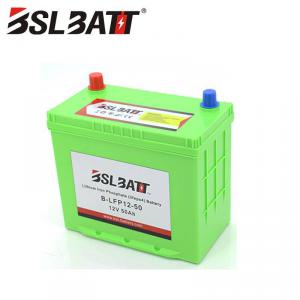Advantages and Limitations of the Lithium Ion Battery
Lithium ion battery (LIB) or Li-ion battery is a type of rechargeable battery. It is usually brought into use for electric vehicles and portable electronics.
COVINA, CALIFORNIA, USA, March 25, 2020 /EINPresswire.com/ -- Lithium ion battery (LIB) or Li-ion battery is a type of rechargeable battery. It is usually brought into use for electric vehicles and portable electronics. They also have applications in aerospace and the military. Some of the advantages and limitations of these batteries are as follows:Environmentally friendly
Li-ion or lithium ion batteries carry comparatively smaller levels of poisonous and harmful heavy metals present in other battery types, like nickel cadmium (NiCd) and lead acid batteries. Batteries of metals like lead, Mercury and calcium have its own impact on the environment like its prolonged exposure and improper disposal is degrading and dangerous for plants, animals and human beings. Even if lithium ion batteries are better and safer than other batteries, they still need proper recycling.
Delicate and compact
In Li-ion batteries, carbon and lithium are the electrodes that are commonly used and are delicate and lightweight. If we compare both the batteries, taking one lead acid battery of 24Ah which weighs about 6-7 kg. and taking other battery of Li-ion and of 51Ah and has the same weight, then we find that Li-ion provides two times more capacity as the lead-acid battery. A very special feature found in Li-ion batteries are its extremely convenient head torches in which runtime and light output can be adjusted according to your preference without adding an extra load on your shoulders.
Energy density is high
Li-ion batteries are high in energy density since lithium is an element which is highly reactive and it also has the ability to store and release energy in huge amounts, which makes it compatible for storing energy capacity that is high and can be packed in small sizes. It means that Li-ion batteries maintain a high-level performance and also last longer than other batteries between charge cycles. The average cell voltage of a Li-ion battery is 3.6V which is more than that of a battery with NiMH (Nickel-metal Hydride) having an average of 1.2V so it shows that Li-ion batteries can give an output of 3 NiMH batteries connected together.
Low or less maintenance is required
Lithium ion batteries do not need high maintenance to keep them in a proper working state. Nickel cadmium batteries need a periodic or regular discharge to make sure that they are not showing any memory effect. This doesn’t have any effect on Li-ion batteries, so maintenance work is not needed. Some of the cells or batteries like that of lead acid batteries need maintenance because the battery acid needs to get renewed regularly. Such active maintenance is not required in the case of Li-ion batteries.
Charge cycles are more, and self-discharge rate is low
When the cell or battery is made to discharge to zero and then it is fully recharged, it is called one full charge cycle. The high-quality lithium ion battery can last up to one thousand charge cycles. Li-ion batteries also have a low self-discharge rate. Self discharge is a phenomenon which is irreversible and natural for batteries where even after batteries are not in use, the chemical reactions taking place inside it reduce its capacity. Li-ion batteries have a discharge of 5% under the first twenty-four hours after the battery is charged and then lowers off 1-2% after every passing month. Comparatively, Ni-Cd batteries have a discharge rate of 10-15% and decrease 10-15% every month.
Limitations
It requires protection
One of the disadvantages of lithium batteries is that they need protection. They need to be protected from being discharged very far and over-charged. They also need a protection circuit to make sure that they are operated between the safe limits. With advanced ICs (integrated circuit technology), this comes built-in to the battery. This protection circuit helps in setting a voltage limit during the process of charging the cell since an excess of voltage can destroy or damage the battery. It also protects the cell voltage from discharging to a very low point.
Aging
The Li-ion batteries go through an aging process. It depends on the manufacturing time and also on the number of cycles charged and discharged until it’s time. These batteries can only withstand 500 to 1000 charge and discharge cycles and after this, its capacity reduces. With the advancement of technologies, the number of cycles is increasing, but after some time, batteries need to be replaced. It can become problematic if it is embedded in the instrument. Li-ion batteries start aging even when they are not in use. To increase the battery's life, a typical battery of lithium cobalt oxide needs to be partly charged up to 40-50% and should be kept in a cool storage area.
Transportation
Transportation is also a problem when it comes to lithium-ion batteries. Only a limited amount of Lithium Battery is allowed on airways or airplanes, so mostly, they are transported by ship. The lithium batteries should be protected from short circuits like being covered with protective films and covers.
Cost
The major problem in the cases of lithium ion batteries is its cost. They are relatively more expensive than other batteries. They are approximately 40% more expensive in manufacturing than that of Ni-Cd (Nickel-Cadmium) cells. This can be a very big problem if it is used on a large scale. The mass production of these consumer items can be disadvantageous if it adds any extra or additional costs.
Advancing technology
It has also become an older technology since technologies are advancing day-by-day. The Lithium Battery Factory China seems to be a lesser developed technology when compared to recently developing technologies or batteries. Although the Li-ion batteries can also be improved through technology, after a certain limit, it cannot be improved any more.
Keeping in mind the advantages and disadvantages, the Li-ion batteries can be progressively used in our day-to-day life and are also being improved and upgraded in every way possible. This makes it feasible for consumer supply. The main market of supply for these Li-ion batteries can be found in China.
Tom Zhang
BSLBATT®
+86 752-2819469
email us here
Visit us on social media:
Facebook
Twitter
LinkedIn
Legal Disclaimer:
EIN Presswire provides this news content "as is" without warranty of any kind. We do not accept any responsibility or liability for the accuracy, content, images, videos, licenses, completeness, legality, or reliability of the information contained in this article. If you have any complaints or copyright issues related to this article, kindly contact the author above.



